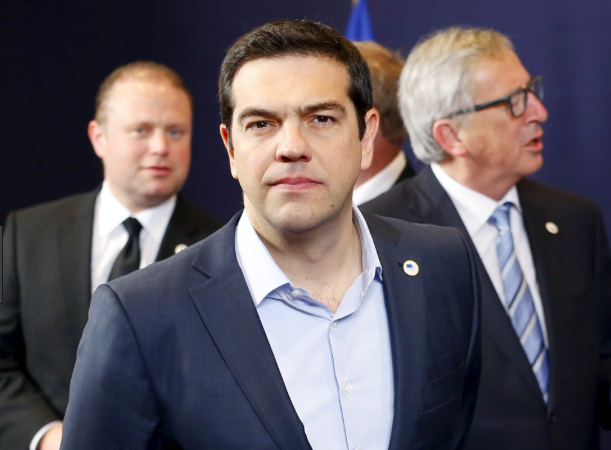The Civil Society Network (CSN) together with Il-Kenniesa, Occupy Justice and l-Awturi, has called on Greek Prime Minister Alexis Tsipras to grant Pilatus Bank whistleblower Maria Efimova asylum to block the extradition order issued by Malta.
Echoing calls made last week by MEPs, the organisations urged Tsipras to protect Efimova and her husband and two children, who are Greek citizens, by ensuring that she is not extradited to Malta.
Efimova is currently in an Athens prison waiting for a hearing on an extradition request made by Malta where she is wanted to answer for a complaint filed by her former employer, Pilatus Bank, that accuses her of misappropriating less than €2,000.
“Normally such a matter should not reach your attention. Nor indeed is it normal for a petty private dispute (Maria Efimova is seeking redress claiming Pilatus Bank owes her three months of salary payments) to be subject to an international arrest warrant and extradition,” the activists told Tsipras in an open letter.
CSN added that Efimova was a source that provided information on illegal activities in Pilatus Bank. “She provided information to Daphne Caruana Galizia who, as you know, has since been assassinated in a car bombing. The brutal nature of her killing has been widely interpreted as a warning by her killers to her sources no longer to provide journalists and the authorities with information on what they know.”
The Russian whistleblower at the centre of a corruption scandal involving Malta’s prime minister Joseph Muscat – is being held in jail in Athens, after voluntarily giving herself in to the police in Athens on Monday night.
In 2017, she testified in front of a magisterial inquiry into allegations that the Maltese Prime Minister Joseph Muscat’s wife was the owner of a Panama offshore company called Egrant Inc, which declaration of trust the whistleblower says she had seen while working at Pilatus Bank. But she has so far been denied whistleblower status by Malta.
A day after Efimova gave herself in, the owner of Pilatus Bank Ali Sadr was arrested in the US. He was indicted on six charges by the FBI, including money laundering and breaching US sanctions.
In the run-up to last year’s general election, Caruana Galizia published Efimova’s account, which included details about an alleged $1 million transfer to Egrant from Azerbaijan’s ruling family. The allegations have been denied by Pilatus Bank and Muscat but a magisterial inquiry is still ongoing.
She later absconded from Malta after saying that she feared for her life and that of her family, including her elderly father in Moscow who she said was being intimidated by “dodgy people.”
In the letter sent to Tsipras was asked to ensure that freedom of expression in Europe prevails, because it “outweighs the need for the prosecution of the alleged misappropriation of less than 2,000 euro filed by someone facing 125 years in an American federal prison for a long series of financial crimes.”
“Maria Efimova helped us learn that our country was harbouring a banker for the corrupt and the criminal. Her account, whenever this has been possible, has been verified as truthful and correct,” the NGOs told Tsipras, adding “For this she does not deserve to be rewarded with continued persecution, not to mention the real risk for her life and the life of her family.”
Following her arrest in Athens, Greek MEP Stelios Kouloglou said Efimova called him from the police station and told him that she turned herself in because she was afraid.
The organisations said Efimova was the victim of a vilification campaign led by prime minister Joseph Muscat who suggested she might be an agent acting on behalf of the Kremlin.
“While in hiding in your country fake news stories in Malta and in Cyprus have appeared falsely alleging she is suspected of killing Daphne Caruana Galizia and more recently attempting to kill the Skiprals in the UK,” the NGOs said.
“These outrageous and utterly baseless accusations have been propagated by officials and agents of the ruling party in Malta whose leading members have been personally implicated by the information provided by Maria Efimova in the corrupt activities conducted by Pilatus Bank,” they added.
While pointing out that it is “virtually unheard of” for an EU member state to provide asylum to a fugitive from another EU country, the NGOs said cooperation in justice and law enforcement is premised on consensus on European democratic values and principles.
“There can be no democracy without free journalism. And there can be no journalism without the protection of sources. A journalist has been killed and her source has suffered vilification, exile, considerable financial hardship and now arrest and detention.”













